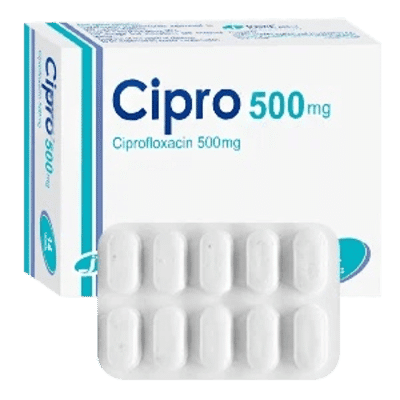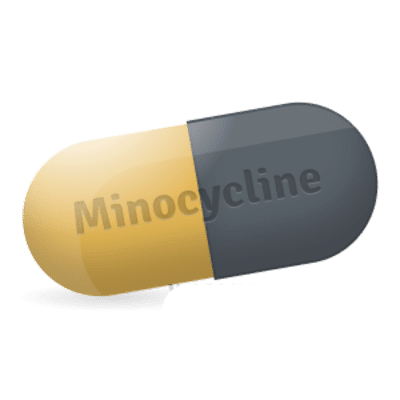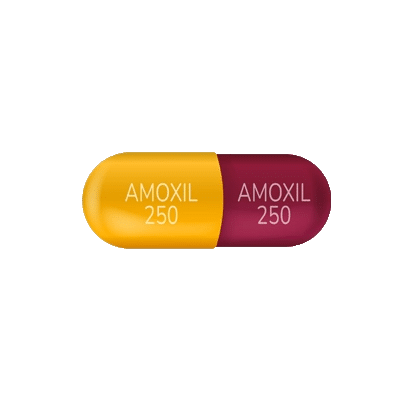I took Cipro for bronchitis and it helped me recover quite quickly. The symptoms started to subside after a couple of days and within a week I was able to return to my normal activities. It was important to follow the instructions and take the entire dose, even when I felt better.

Cipro
- Quality products
- Support 24/7
- Fast delivery
What is it?
Cipro is a powerful quinolone antibiotic that is widely used to combat a variety of bacterial infections. Its ability to kill bacteria or slow their growth makes it an integral part of the therapeutic arsenal in the treatment of infectious diseases. The antibiotic is effective against urinary tract infections, respiratory infections, skin infections, digestive tract infections, and even bone infections. It is important to note that Cipro is not intended to treat viral infections such as colds or flu, as it only targets bacteria.
Composition
The composition of the Cipro tablet determines its effectiveness in fighting infections. The main active ingredient that determines the therapeutic effect of the drug is ciprofloxacin. It was originally developed to suppress bacterial cells by disrupting their division and growth processes.
- Ciprofloxacin is the main component responsible for the antibacterial effect.
- A filler that provides the shape of the tablet and helps to evenly release the active substance.
- A depressant that maintains the stability of the pharmacological form and ensures its protection from external influences.
- Binders that hold all the ingredients together, ensuring the integrity of the tablet.
Each of these components plays its role, ensuring optimal interaction and release of the active substance, which contributes to the effective destruction of bacteria.
How to use?
Cipro requires strict adherence to the recommendations to achieve maximum effect and minimize possible side effects. The drug is taken orally with a full glass of water. It is important to follow the indicated dosage and not to change the frequency of administration on your own.
- The drug should be taken at regular intervals to maintain a constant concentration in the blood.
- The course of treatment must be completed in full, even if the symptoms of the infection have disappeared before its completion, to avoid the development of resistant forms of bacteria.
- Cipro can be taken both on an empty stomach and during meals, but you should avoid combining it with milk or yogurt as the only food.
Particular attention should be paid to the option of missing a dose: in case of a missed dose, take the missed dose as soon as possible, but do not double the next one.
How does it work?
Cipros mechanism of action is based on its ability to inhibit specific enzymes inside bacterial cells that are responsible for DNA reproduction and repair. This leads to disruption of the bacterial life cycle and their death. This targeted attack on DNA provides high efficacy against a wide range of gram-positive and gram-negative bacteria.
Since Cipro directly affects the processes occurring inside bacteria, it has a rapid and intense therapeutic effect. However, at the same time, it is important to consider the possible development of resistant strains in case of improper use, which emphasizes the importance of following all recommendations for its use.
In addition, the active effect of Cipro on bacterial cells is accompanied by minimal impact on human cells, which makes it quite safe to use, but medical supervision and consultation remain mandatory.
Indications
The main indications for Cipro include various types of bacterial infections, where it demonstrates high efficiency. This antibiotic is usually used in the following cases:
- Urinary tract infections, including cystitis and pyelonephritis.
- Respiratory tract diseases, such as pneumonia and bronchitis.
- Skin and soft tissue infections, including abscesses and phlegmon.
- Gastrointestinal tract diseases, including bacterial ones.
- Bone infections, including osteomyelitis.
In each of these cases, the drug can be used as a monoprophylaxis or in combination with other drugs, providing complex treatment.
Contraindications
Despite its effectiveness, Cipro has a number of contraindications that must be taken into account before prescribing. This is important to ensure patient safety and minimize the risk of adverse reactions.
- Hypersensitivity to ciprofloxacin or other quinolone antibiotics.
- Presence of allergic reactions to the components of the drug.
- Severe renal or hepatic insufficiency.
- History of tendon diseases associated with taking quinolones.
- Pregnancy and breastfeeding, unless the benefit outweighs the risk.
Each of these conditions requires careful assessment by a doctor before prescribing Cipro, which will help to avoid potential complications.
Side effects
Side effects when taking Cipro may occur, as with any medicine, although they are relatively rare. It is important to remember about possible reactions of the body in order to seek medical help in a timely manner.
- Headaches and dizziness may occur as the first signs of intolerance to the drug.
- Sleep disorders, including insomnia or, conversely, drowsiness.
- Gastrointestinal problems, such as nausea, vomiting or diarrhea.
- Allergic skin reactions, manifested as a rash or itching.
- Changes in biochemical blood parameters, which should be monitored by a doctor.
If you notice any of the listed symptoms, it is important to stop taking it and consult a doctor to adjust the therapy.
Frequently asked questions
Cipro Reviews and Experiences
My impression of Cipro is mixed. On the one hand, it helped to cope with a urinary tract infection. But on the other hand, a small rash appeared, which, however, disappeared quickly after stopping the intake. Overall, it justified its functions, but caution does not hurt.
Treated a skin infection with Cipro. The product lived up to expectations and gave results within a week. At first I was worried because I felt a little dizzy, but the doctor explained that it was temporary. In the end, it turned out to be a minor inconvenience compared to the effectiveness of the product.









